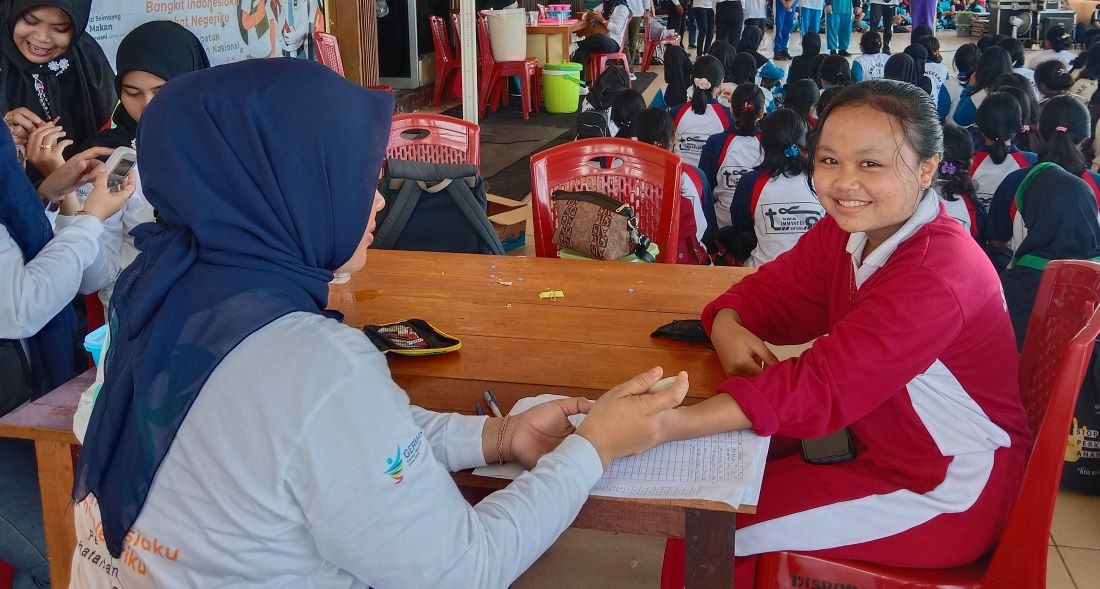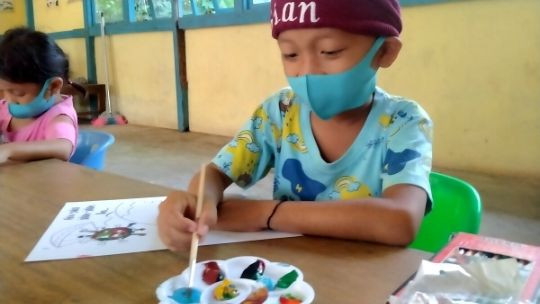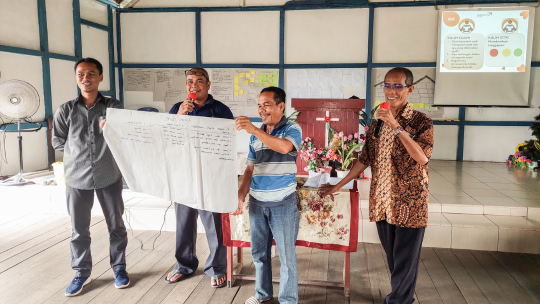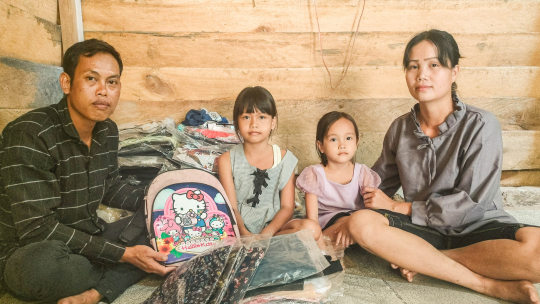The Changemakers Stories

What is the similarity between a teenage girl, a mother, a local health care, and a child with disability? The similarity is they can be the changemakers. Someone who can be defined as changemakers are those who have courage in taking creative and innovative steps to solve problems around them. Whether to initiate a global movement, or actively participate in the village development program, changemakers have these three characters:
-
Empathy towards people or social issues
-
Motivation to act
-
Courage to see things differently
A teenage girl from Sintang sub-district in Kalimantan might bring simple changes to her surroundings. So as Ainun Nafisah, a village development cadre from South Sulawesi. These short stories from various area where Wahana Visi Indonesia works, can give a glimpse of what changes have been made during program implementation. These people are the changemakers who contribute a bigger impact on child and community well-being in Indonesia.
Full and Nutritious
Indari (14) joined in an activity on the National Health Day celebration at Sintang sub-district. Through this activity that share about anemia prevention for teenager, Indari had a new knowledge about nutritious and balance meals menu. This menu was called the Four Stars menu. Each star represents carbohydrates, protein, vitamin, and fat that every child needed. “Before, I ate only to feel full. I don’t care if it nutritious enough or not. Now, after learning about the importance of nutritious and balance meals, my lunch box consists each star. I ate my rice, with tempe or tofu, egg, and vegetables,”. Indari also feel motivated to share about this Four Stars menu to her friends. “I want everyone to be healthy, so they can go to school and study well,” she said.
The Village Women’s Voice
Ainun Nafisah (39) is not an ordinary housewife. She is also the village development cadre who actively participate in various events. In 2022, she is selected as the woman delegation for the sub-district Musrenbang.
“Before, I was not interested in joining any activity in my village. I think, those activity was unimportant. I better went to my farm to work. I will come to village meetings if there is an aid or relief program,” she said. “But now, I participate in many activities. I enjoy it a lot. I like learning new things, and I am motivated to be a part of my village development,”. Ainun felt this change and decided to be the changemakers after taking public speaking and leadership trainings. These trainings were part of the Cocoa Life program, implemented by Wahana Visi Indonesia and Mondelez International.
Stunting Prevention is Important
“Short child might not be stunt, but a stunt child must be short,” said Yulita Hastuti (32), when she facilitated a workshop to raise awareness about stunting issue. Yulita is not a doctor or a nurse. She is just a health care in her village at South Bengkulu. But she felt challenged and burdened to share about this important issue to her fellow village health care. “I am so happy to share knowledge and experience with other health care from different village. I have concern in this issue, and I think, many people already know this, but still did not have a deep understanding about stunting,”.
Unlimited Boundaries
Yasinta F. Iman, a child with disability from Manggarai, once felt very limited with her physical condition. She had limited activities, she also felt different from other children. “In 2021, my village government asked me to join in village Musrenbang. But I came and could not do anything,” she remembered. But, after that, she was challenged to be a better and useful person. Until she finally overcome her boundaries after actively participated in child groups at her village. After she learn many new things in the child groups, she was selected to be a child representative in the village meetings. She raised issues about child’s rights in those meetings. “I am glad, I can be a part of this movement to fulfill the child’s rights in my village,”.



